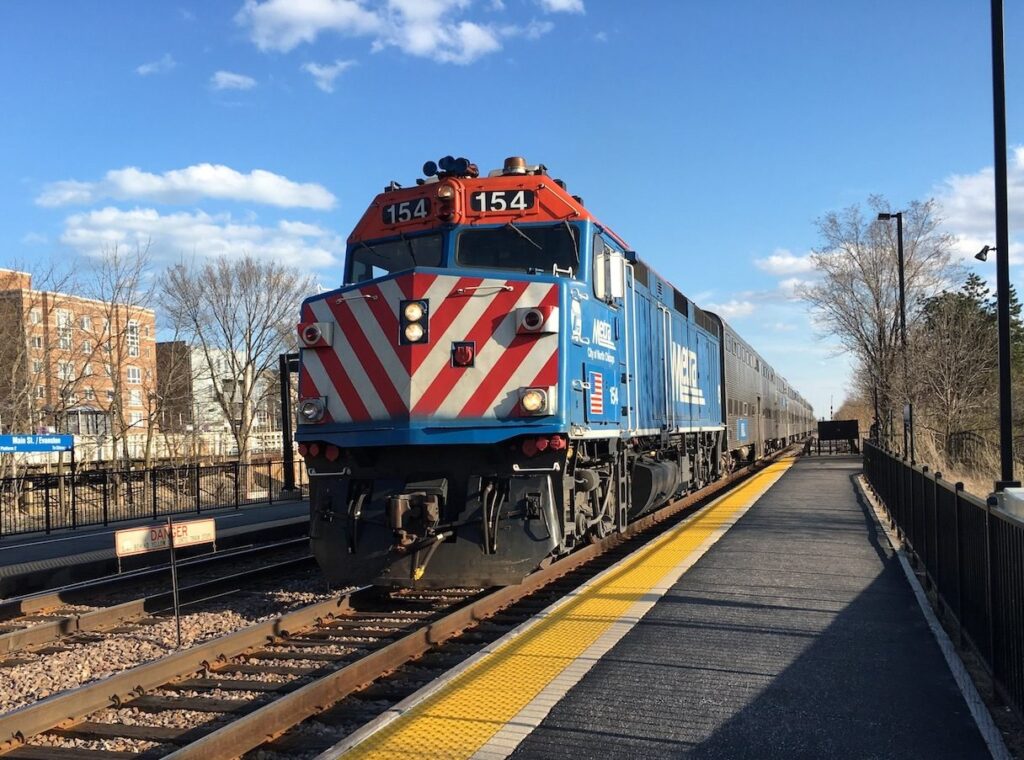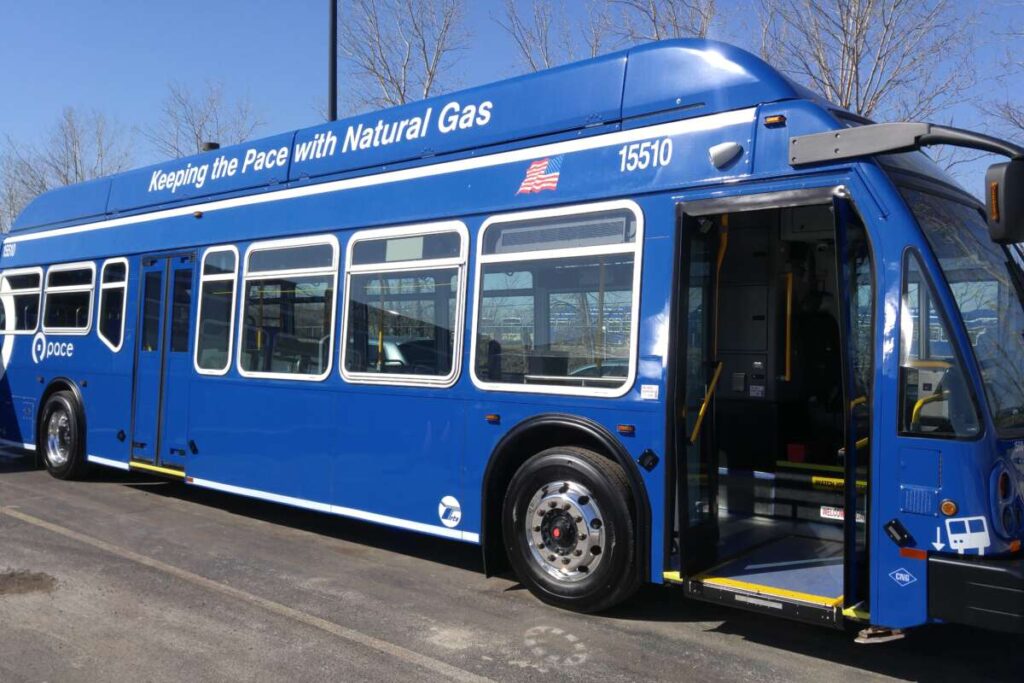Locomotive Alternative Energy Fuel Study
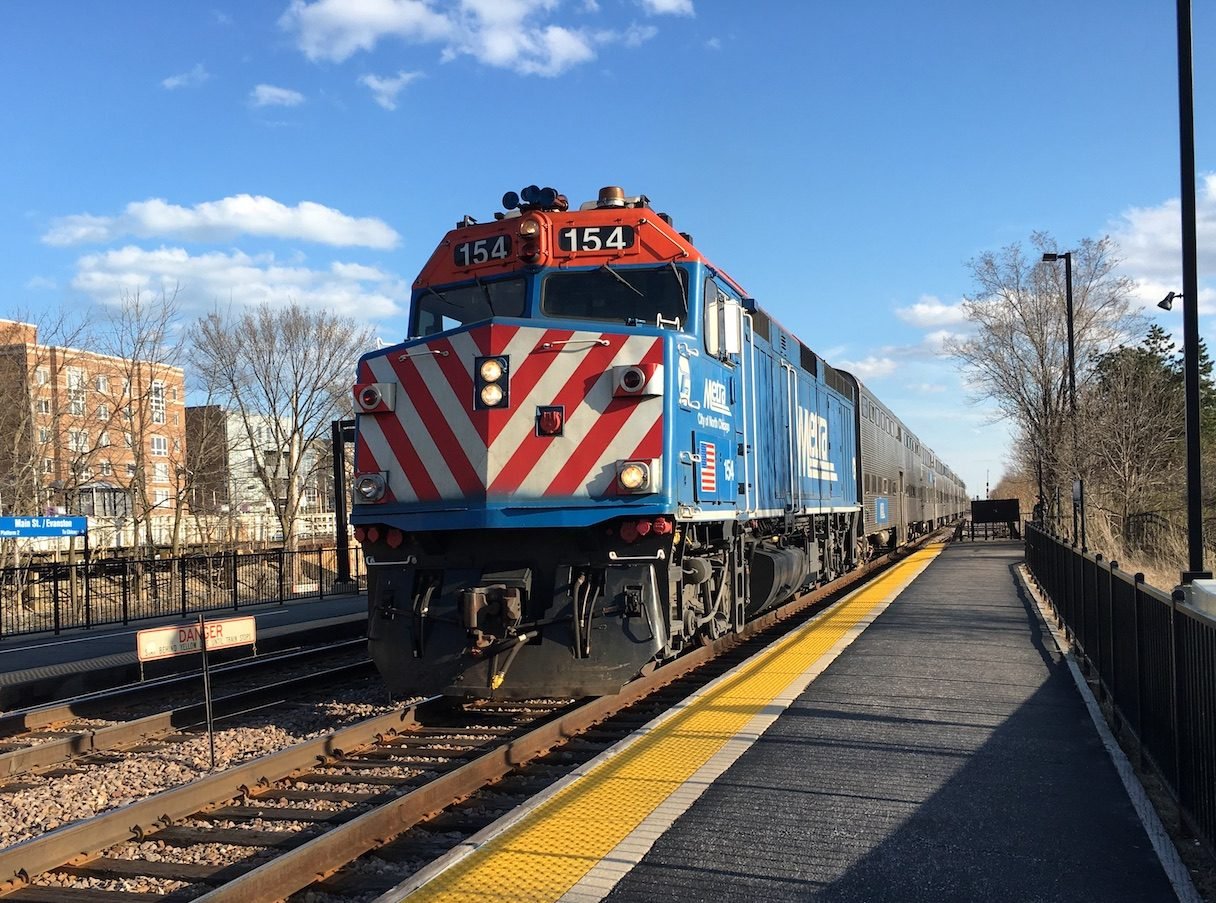
The consultant team of LTK Engineering Services and Canete Medina Consulting Group Inc. was engaged by the Chicago Regional Transportation Authority (RTA) to conduct a feasibility study of alternative energy fuels for use by the locomotive fleet of their partner commuter rail agency, the Northeast Illinois Regional Commuter Railroad Corporation (Metra).
The objective was to conduct a cost and benefit analysis of potential fuel savings and emissions reductions of a full or partial fleet conversion to a diesel fuel alternative. The analysis considered the capital cost, operating and maintenance costs, facilities impacts, safety considerations, operational requirements, governing regulations, and return on investment. Canete Medina developed the financial cost model and performed the financial feasibility analysis for this study. Canete Medina also assisted in identifying potential funding opportunities and contributed to writing the final report.
RTA 2011 & 2013 Customer Satisfaction Survey
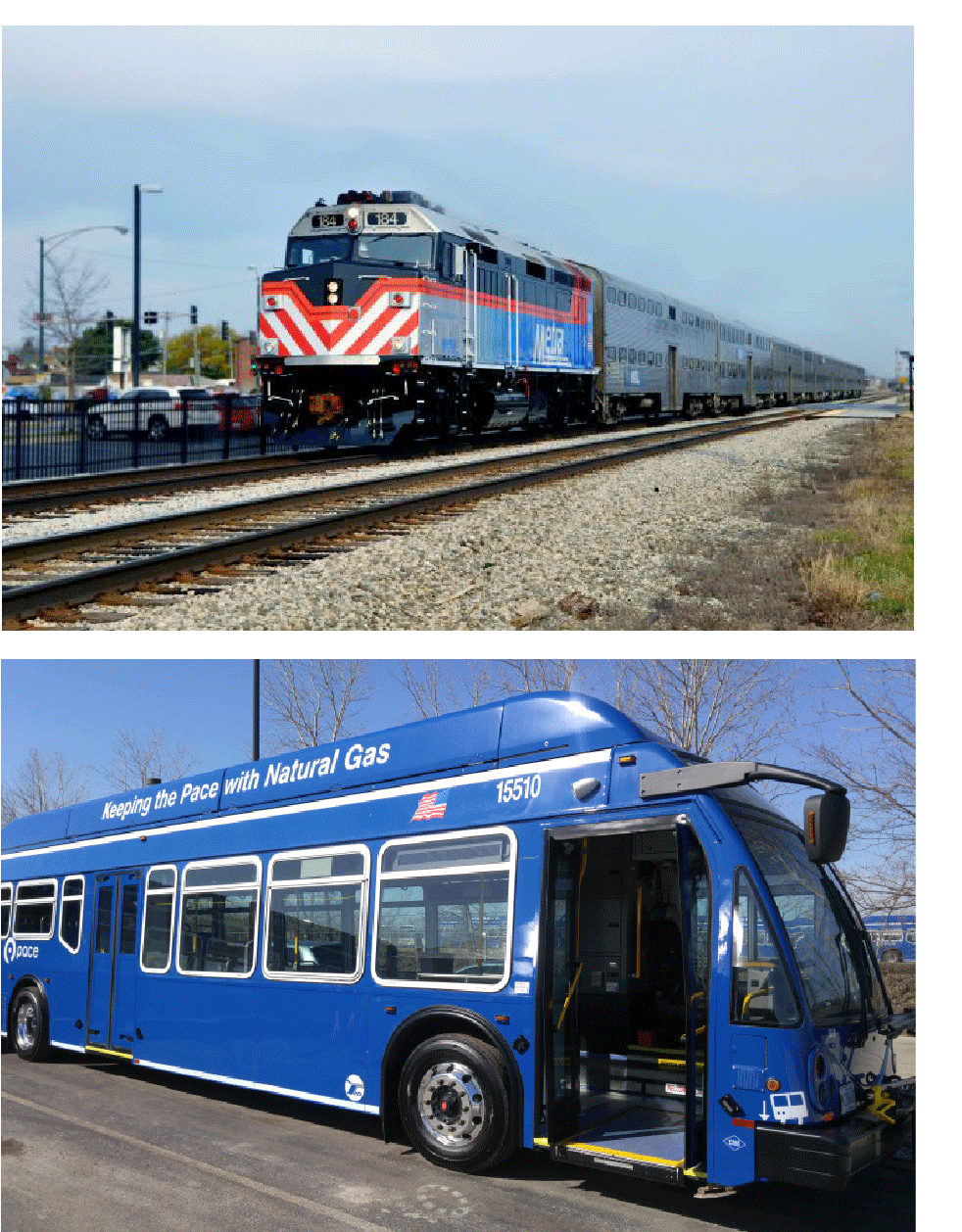
In 2011, approximately 25,000 surveys were distributed by Canete Medina survey crews onboard Metra trains and CTA trains and buses. The surveys were conducted within a ten-week period from October to December 2011.
In 2013, Canete Medina surveyors again distributed approximately 15,000 surveys onboard Pace buses within a six-week period in November and December 2013.
Photo Source:
Metra Train, Regional Transportation Authority Chicago
RTA Fare Model Study
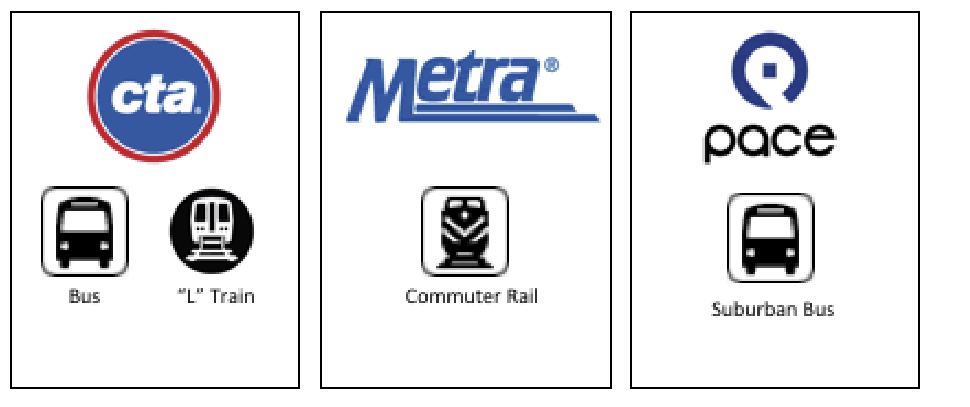
As a subconsultant to Transystems, Canete Medina (formerly cmQue, inc.) conducted rider intercept surveys for Pace Bus and Chicago Transit Authority (CTA) at several major transit terminals. Canete Medina also conducted Pace Bus on-board rider surveys at the Orland Square Mall and the Waukegan Transportation Center. Canete Medina translated the survey to Spanish, printed 3,000 survey questionnaires with unique serial codes (in both English and Spanish), and printed postcards that requested riders to complete the online survey by entering a unique serial code. Canete Medina also developed the on-line version of the survey for Pace Bus, Metra Rail, and Chicago Transit Authority. Canete Medina coded the data for all the completed paper forms collected during the intercept and on-board rider surveys.
Year Completed: 2012
RTA Market and Systems Analysis
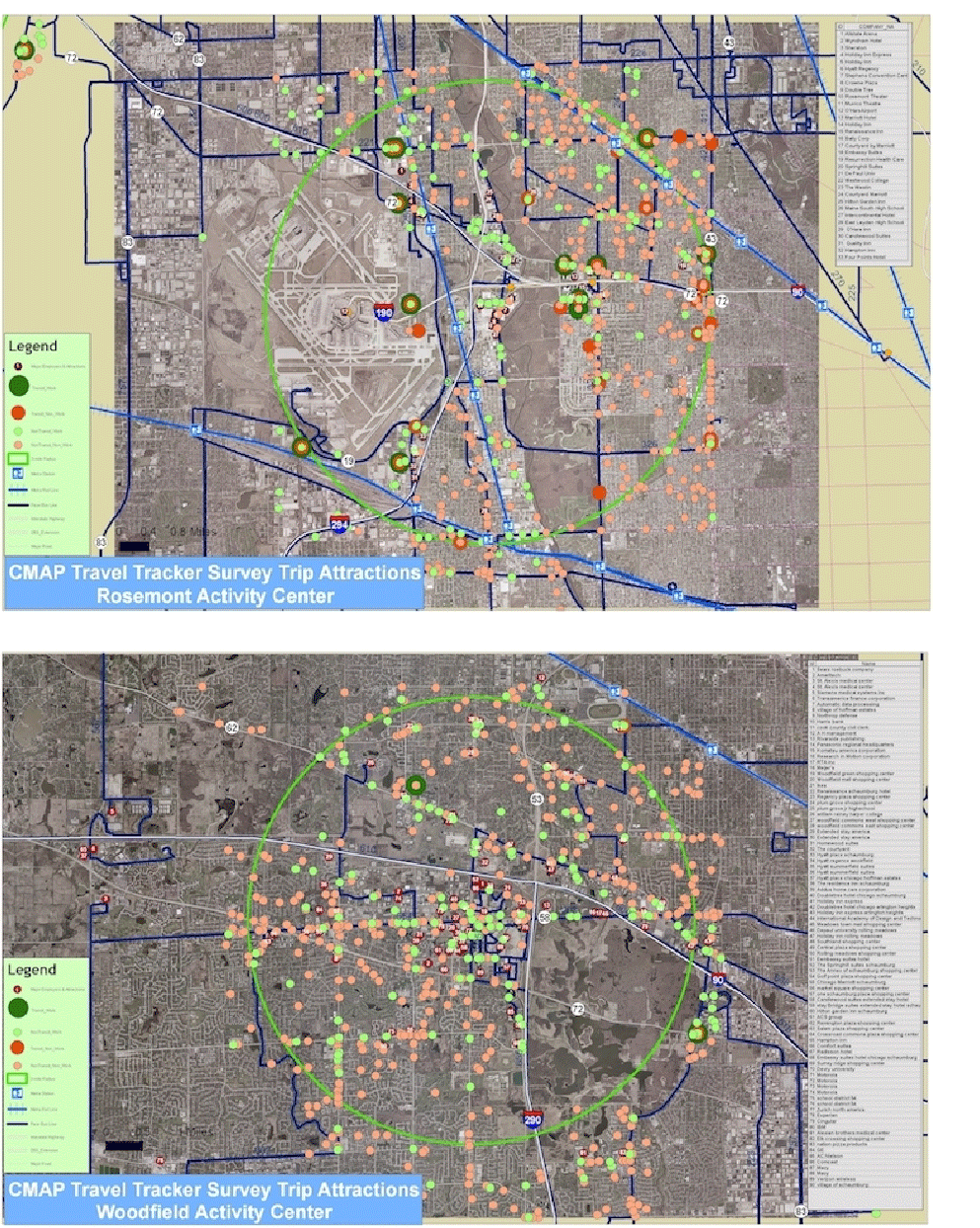
The objective of the RTA Market Analysis was to investigate travel patterns and demand in the six-county Chicago metropolitan region to determine which market segments are the most transit-viable.
As a sub-consultant to Cambridge Systematics, Canete Medina (formerly cmQue, inc.) assisted the project team in analyzing the results from the completed CMAP Household Travel Tracker Survey, using a geographic information system. Canete Medina was also responsible for collecting data on transit use for non-traditional transit markets. Canete Medina compiled and analyzed information on station area environments, local access and egress, and transit service and schedules for the purpose of recommending improvements that will encourage transit use. Canete Medina prepared aerial maps with accompanying data, employing GIS for use in various types of analysis.
Year Completed: 2010
RTA Cook-DuPage Corridor Travel Market Analysis
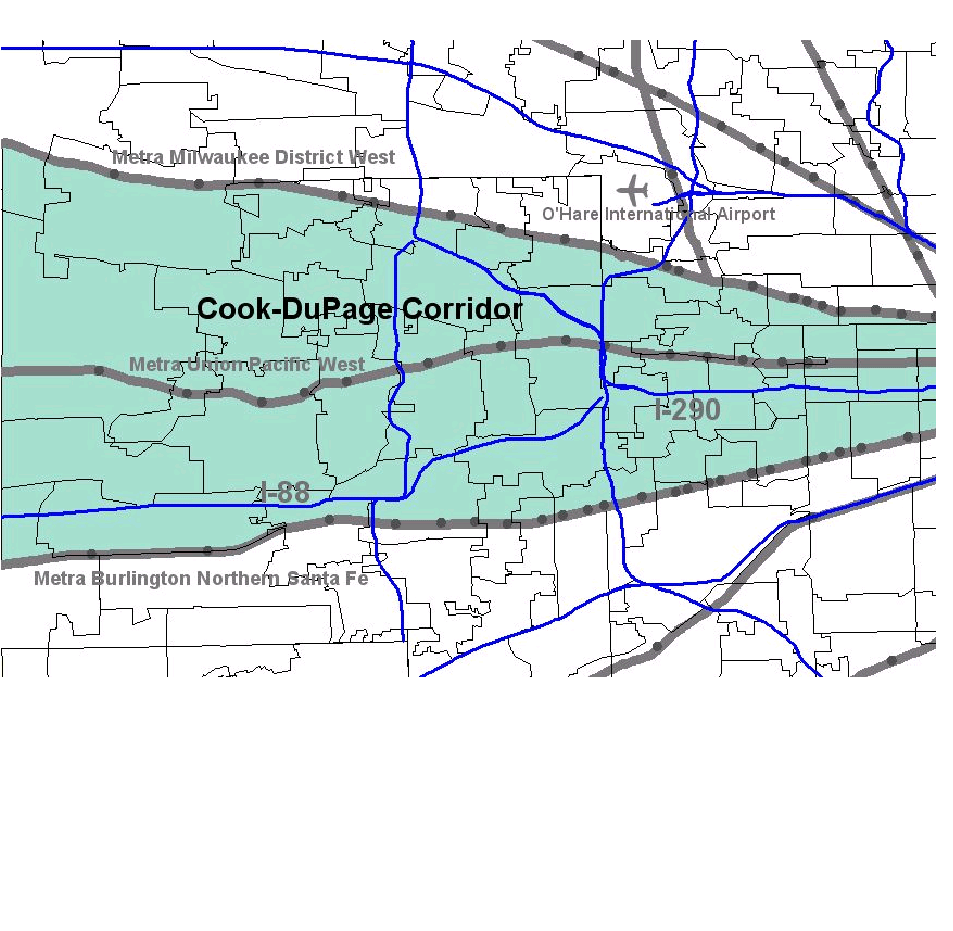
The objective of this project was to examine the Cook-DuPage corridor with emphasis placed on current mobility conditions from a multi-modal perspective. The study examined existing socioeconomic and travel conditions, as well as expected future trends within Cook-DuPage study area, in order to highlight mobility deficiencies. The market analysis utilized data on resident and employment profiles, existing highway and transit infrastructure conditions, corridor travel patterns, and corresponding level of service provision. By quantitatively and spatially documenting these data, effective and feasible alternatives were formulated to better address the corridor’s mobility needs.
As a sub-consultant to Cambridge Systematics, Canete Medina (formerly cmQue, inc.) was responsible for developing and geocoding an employer database, identifying and assessing the study corridor’s major activity centers, and quantifying the travel impact of each major activity center on existing travel segments. As part of the activity center analysis, Canete Medina analyzed existing land use, current zoning and real estate trends to evaluate their impact on future land use and travel demand.
Year Completed: 2004
